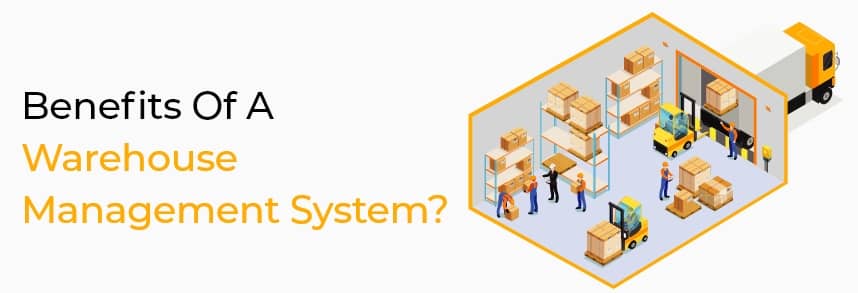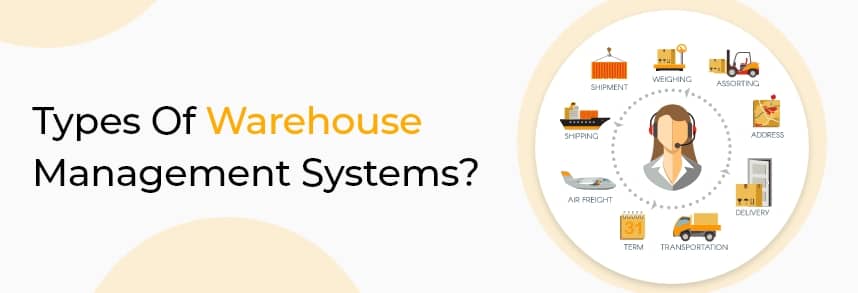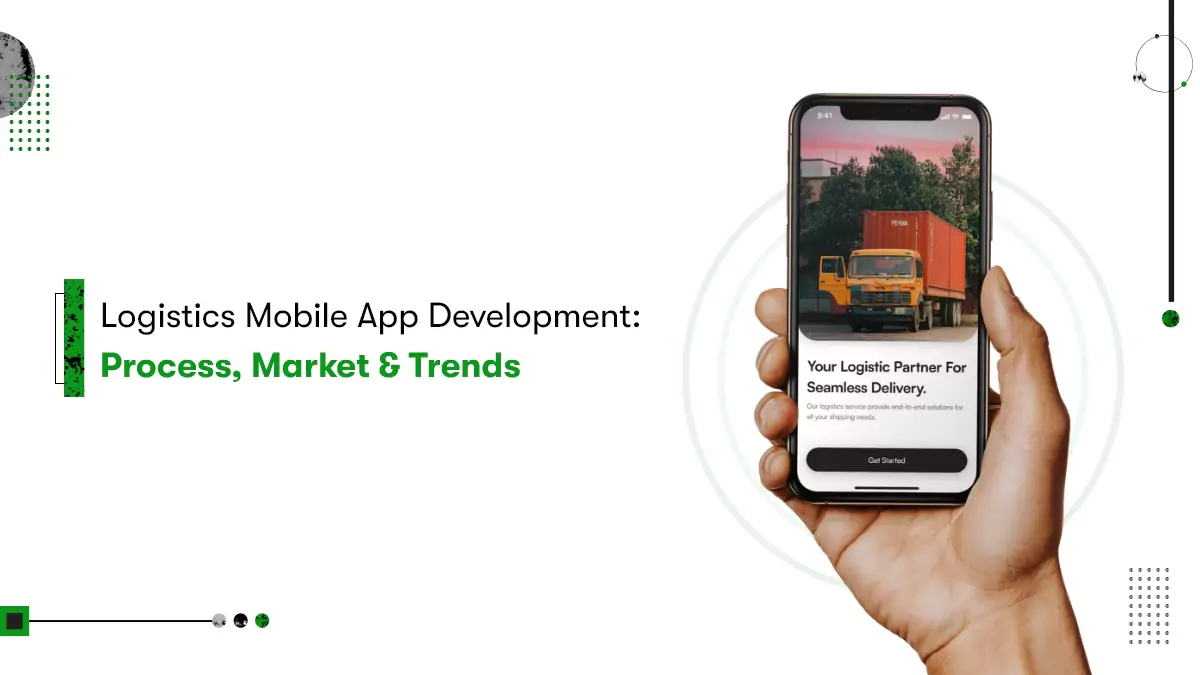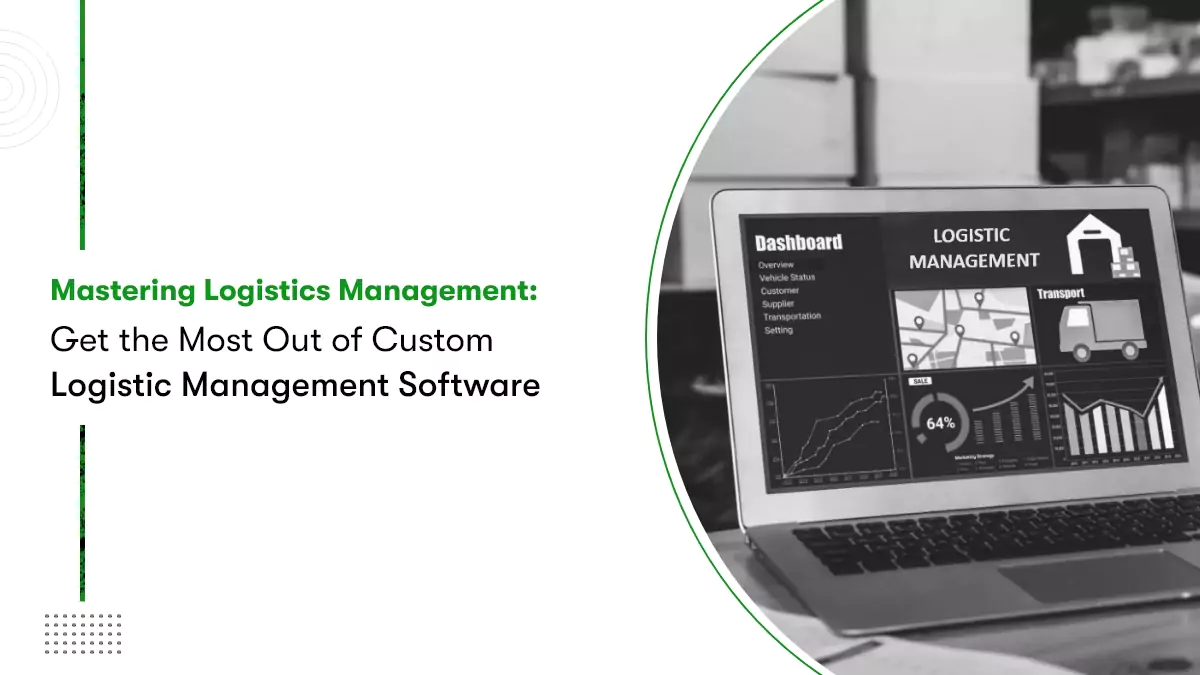Are you struggling to cope up with your warehousing requirements? Do you keep wondering where your stock is and who accessed it last? Inefficient and entangled warehouse operations are nothing but trouble. Adding to the trouble is the fact that the operational inefficiencies also chops off profit margins. Well, who would ever wish to bear losses when this trouble can be laid off by developing a warehouse management system. A smart warehouse system harnesses powerful internal operations. It opens up doors of opportunity for your business to grow and sustain the rising competition. There is a lot more stored in for you if you opt for warehouse management software solutions. Let’s open the Pandora box of benefits and what procedures you should follow to develop warehouse management software.
To begin with the basics,
What is warehouse management software?
A warehouse consists of multiple operations that begin from inventory, shipping, packing, etc. A warehouse management software is designed to handle all of these operations in a controlled and monitored manner.
Specific types of WMS systems also give you control of third-party logistics processes. Before you decide what type of WMS you want to build, let us first understand how a warehouse management system works.
How does a warehouse management system work?
Building a custom warehouse management system gives you a bird’ eye view of every single operation going within the warehouse. If we look at the warehouse management cycle, it starts with inventory management.
Inventory management includes,
- Receipt of goods: All the order details from various vendors and suppliers are stored in a single place. The barcode scanning makes it easier to add or remove products from the warehouse list.
- The products are allocated to shelves, and the stocks remain well-organized.
- The inventory manager is aware of the available stock so that there is neither shortage nor overstocking of goods.
Next is Order management,
- A smart warehouse management software development ensures that the products are picked up as per the first-in-first-out rule.
- Order packing is also a crucial part of the warehouse. A wrong label or tag can literally ruin the entire experience. A WMS ensures that the right quantity and product type are packed with the right label and logo.
- Once the packaging is ready, the product is ready to be shipped. The shipment is then scheduled for delivery. Every detail of the shipment is documented so that, if required, even a refund can be initiated. A WMS will automate the entire process and keep a record of details.
Next is, Reporting and Analytics:
- WMS will monitor the movement of consignment, workers, truck locations, and a lot more.
- A WMS system provides custom reports at the end of the decided term. This report lets us know profit margins, the most productive worker, sales season, best selling product, highest profit-making marketing channel, etc.
What are the benefits of a warehouse management system?
There are ample benefits of developing a warehouse management system. With the above-streamlined operation narration, you would have already grasped the benefits of WMS. However, let’s look at the benefits in detail.
Optimized processes:
If you build a suitable WMS with all the features and functions, the warehouse can operate smoothly. You can handle and control the movements within and outside the warehouse. You can work upon various algorithms and heat maps to track the entire lifecycle.
Easily accessible inventory:
With a WMS system in place, you can be rest assured that nothing from your inventory will go misplaced or lost. The barcode scanning and RFID ensure that the goods are safely transported to their location.
Reduced admin work:
WMS system implementation means that the tasks are automated. This drastically reduces the need for manual paperwork and as a result, the admin officials do not have to spend hours segregating the distributed channel records.
Enhanced customer relationships:
WMS implementation allows you to satisfy the instant demands of customers. You can be more productive in handling the warehouse operations and meet the end-users requirements.
Well, lastly, WMS ensures the security of every consignment and transaction initiated through the warehouse. Also, automated operations save a lot of time and resource engagement. This way, the overall cost of warehouse management is also reduced.
What are the different types of warehouse management systems?
Now that you know how you will benefit from a customs warehouse management system, it is time that we learn what WMS type would work best for your warehouse.
Standalone warehouse management system:
The most cost-effective system that can be installed in the company’s hardware or network is a standalone system. This system type is best suitable for small businesses operating with a limited budget. However, this system may have certain flaws which can be covered using third-party software.
A standalone system may fall short in carrying out extra supply chain operations. It lacks real-time visibility.
Cloud-based warehouse management systems:
A completely centralized system using cloud technology is referred to as cloud-based WMS. It is a suitable WMS type for businesses of all sizes, as this type is extremely scalable. The inventory cost is low as it doesn’t require any hardware or native networks for installation. Cloud-based WMS is again a cost-effective solution, easy to implement and use.
Supply chain management system:
A supply chain management system development is effective in handling a multitude of tasks. It handles inventory cycles, material procurement, and replenishment, and many other involved tasks.
A supply chain management system is best for small to medium-sized businesses. SCM is flexible and helps in satisfying customer requirements; however, you may have to encounter uninvited operating costs.
ERP system:
Enterprise Resource Planning (ERP)imparts high visibility and enhances reporting and planning capacity. ERP systems are flexible enough to integrate a WMS software or SCM into it. It is best suitable for businesses of all sizes; however, it has high implementation costs.
Here comes an end to the types of warehouse management systems; now, let us look at the features that you need to integrate into a WMS.
Now that you have decided to develop a warehouse management system, it is important for you to know what features will make the software more reliable. We have listed a few necessary features; however, it is best to go for custom warehouse management system development. Select an elite development team for your project, discuss your goals, and chart out an effective software development process strategy.
For any assistance or guidance, you can also connect with us.
Stock tracking:
A WMS system should have a stock tracking feature that helps in tracking the movements of goods till the delivery. Also, the inventory is automatically updated, which means the stock never goes down to the optimum level.
Catalog:
Your custom build WMS should have a catalog that displays the list of products and helps in picking up the right product from the list. It reduces human errors and thus creates new sales opportunities.
Kitting/Dekitting:
This feature helps warehouse managers in generating work orders for professionals working in the warehouse. It helps them merge multiple items into one. The De-kitting feature operates for kitted goods or goods that are returned back to the inventory.
Stock rotation:
Stock rotation feature helps in managing a variety of stocks based on lot number, receipt date, manufacture date, expiration date, etc.
Complete transaction analysis:
This feature lets the warehouse manager know about the stock shortage and overstock. It lets the visitor know about the order schedule for pickup and shipment.
A few other features to include are:
- Inventory maintenance’
- Cycle counting;
- Paperless inventory transfer;
- Internet-enabled;
- Compliance labeling;
- Barcode processing;
- Advanced reporting;
- Backorder processor;
- Dashboard;
- Inbound management;
- Outbound management;
- Multiple warehouse management;
- Full security matrix;
- eCommerce integration;
- Mobile device support;
- Multiple-location support;
- EDI support;
What is the cost to develop warehouse management software?
Since we are talking about a custom warehouse management system, we would give you an estimated development price specific to Kody Technolab. Our holistic approach and niche expertise in this field can help you develop a WMS with a budget of $35K.
This price may vary depending on various cost variation factors. However, connect with us in person to grab more information on the same.
Ready to empower?
The warehouse management system is the need of the hour. It not only gives real-time visibility but also increases the productivity of operations by unimaginable levels. If you are looking for a partner to develop a robust warehouse management software, we are open to discussion. Our solutions give real-time insights into every operation performed within the warehouse. Get in touch with us.














 Contact Information
Contact Information